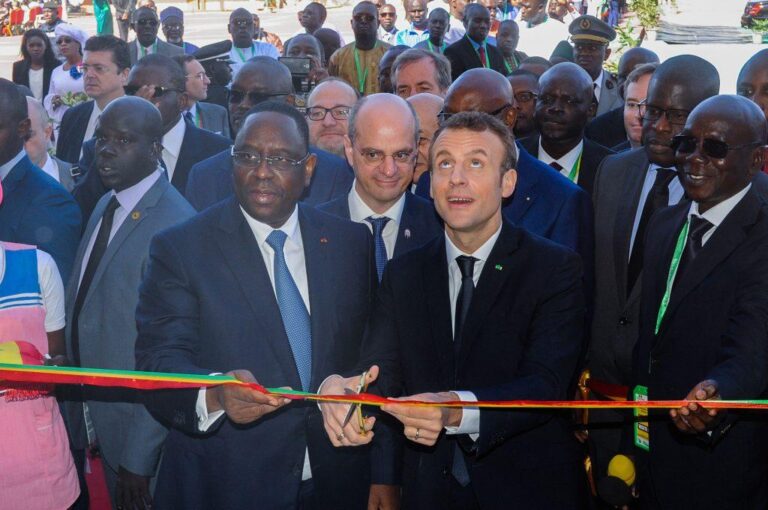France has announced a renewed commitment to bolstering education aid, stepping up its efforts to support global learning initiatives. In a move highlighted by Euractiv, the French government aims to increase funding and strategic partnerships to address educational disparities exacerbated by recent global crises. This development comes as part of a broader international push to ensure access to quality education for vulnerable populations worldwide.
France increases funding to support global education initiatives
In a decisive move to enhance its global contributions, France has allocated an additional €150 million to bolster educational programs worldwide. This strategic increase aims to provide more robust support for initiatives targeting underserved communities, particularly in regions grappling with conflict and poverty. The funding will prioritize collaboration with local governments and NGOs to ensure sustainable development and equitable access to quality education.
The expanded budget will focus on several key areas:
- Digital learning infrastructure to bridge the technology gap
- Teacher training programs to improve educational standards
- Early childhood education to promote lifelong learning foundations
| Region | Funding Amount | Primary Objective |
|---|---|---|
| Sub-Saharan Africa | €60M | Improve school infrastructure |
| Southeast Asia | €45M | Expand digital classrooms |
| Middle East | €30M | Support refugee education |
| Latin America | €15M | Teacher development |
Focus on digital learning technologies to bridge education gaps
Recognizing the uneven access to quality education across different regions, French initiatives are increasingly harnessing digital learning technologies to ensure equitable opportunities for students. These technological solutions are designed to overcome traditional barriers such as geographic remoteness and infrastructural limitations. Tools like interactive e-learning platforms, mobile applications, and virtual classrooms are being deployed to create flexible, accessible education pathways, enabling learners in underserved communities to engage with curriculum content more effectively.
The government’s strategy also includes targeted support for educators through digital training modules, ensuring they can adeptly integrate new technologies into their teaching practices. Key components of this approach involve:
- Implementing AI-driven personalized learning experiences to accommodate diverse student needs.
- Expanding broadband connectivity in rural and disadvantaged areas.
- Collaborating with tech firms to develop culturally relevant, multilingual resources.
| Technology | Benefit | Target Group |
|---|---|---|
| Virtual Classrooms | Real-time interaction and accessibility | Remote rural students |
| Mobile Learning Apps | Learner engagement on-the-go | Youth with smartphone access |
| AI-Personalized Curriculum | Tailored learning experiences | Students with diverse learning needs |
Collaboration with international partners to enhance aid effectiveness
France has intensified its collaboration with key international stakeholders to bolster the impact of its education aid programs. By aligning efforts with global organizations such as UNESCO and the World Bank, French initiatives are increasingly targeting systemic barriers in education access and quality. These partnerships focus on sharing expertise, harmonizing funding mechanisms, and deploying innovative technologies to ensure aid reaches the most vulnerable populations efficiently and transparently.
Central to this collaborative push is a commitment to:
- Coordinated program design that minimizes overlap and maximizes resource use;
- Capacity building for local educational institutions to sustain long-term improvements;
- Data-driven monitoring and evaluation frameworks enabling real-time adjustments;
- Inclusive dialogue involving governments, civil society, and beneficiary communities.
This multi-layered approach underscores France’s strategic intent to contribute meaningfully to the Sustainable Development Goal of inclusive and equitable quality education worldwide.
| Partner Organization | Focus Area | Key Initiative |
|---|---|---|
| UNESCO | Curriculum Development | Inclusive Education Framework |
| World Bank | Infrastructure | School Renovation Projects |
| OECD | Policy Analysis | Education Finance Models |
| European Commission | Digital Learning | Remote Education Platforms |
Experts recommend targeted programs for vulnerable communities
In addressing the deep-seated inequalities in educational access, specialists emphasize the importance of customized support frameworks that resonate with the specific needs of marginalized groups. These programs focus not only on improving basic literacy and numeracy but also on enhancing digital literacy and critical thinking skills vital for today’s world. Key elements include:
- Localized curriculum development that respects cultural contexts and languages
- Community engagement initiatives to foster parental involvement and trust
- Dedicated mentorship schemes to guide students through academic and personal challenges
- Infrastructure upgrades ensuring access to technology and safe learning environments
Data collected from recent pilot studies highlight the benefits of these targeted efforts. The success metrics, including improved attendance and academic performance, affirm the effectiveness of such programs in vulnerable zones. Below is a summary of key outcome indicators from selected projects:
| Indicator | Pre-Program | Post-Program |
|---|---|---|
| Attendance Rate | 65% | 88% |
| Reading Proficiency | 40% | 73% |
| Digital Literacy | 21% | 67% |
In Summary
As France intensifies its commitment to educational aid, the move signals a broader push to address global inequalities and foster sustainable development. By channeling resources and expertise into education initiatives, the country aims to empower underserved communities and lay the groundwork for long-term growth. Observers will be watching closely to see how these efforts translate into measurable impact on the ground and inspire similar actions from other international actors.




